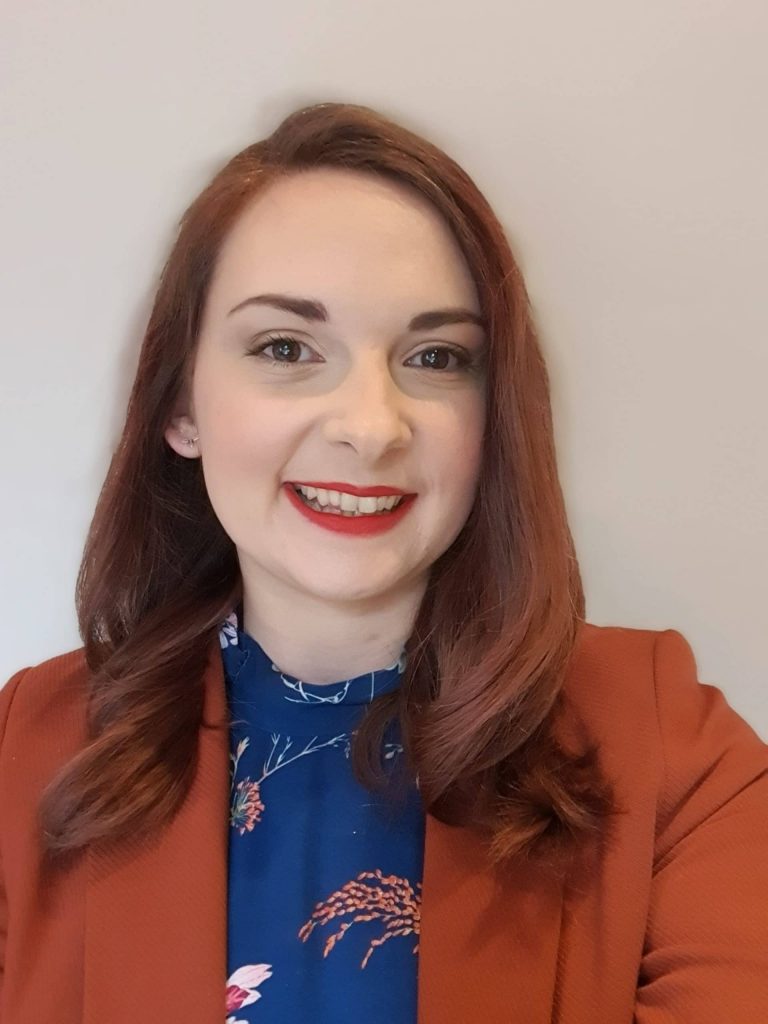Spotlight on...Genetic Counselling #GenomicsConversation
Genetic Counselling and Genomics
This week is the national #GenomicsConversation week of action, part of a campaign launched by the Genomics Education Programme (GEP) to dispel the myths, explain the facts and outline the clinical impact of genomics. At South East we will be sharing a series of interviews with different health professionals where they discuss how genomics is changing how they care for their patients.
As the first in our Spotlight on Genomics series, we interviewed Beth Coad, Genetic Counsellor at St George’s University Hospitals, on how she uses Genomics in her clinical practice.

What most excites you about genomics? I’ve always been fascinated by how such a tiny change, maybe as a small as a swap of one letter in your genetic code can have such a vast impact on many systems of the body. With genomics we can identify more of these changes, called variants.
So many of my patients explain one of their motivations for having genetic testing is to find out information for their family. Although, it’s usually far more poetically put as ‘knowledge is power’ or ‘forewarned is forearmed’. With genomics there is potential to find out more information for a greater number of families.
What do you feel are the benefits of genomic medicine for your patients? Genomic medicine provides opportunities for disease prevention and personalised treatment for patients with a range of conditions.
In cancer genetics we see this regularly; a genetic test result may alter a patient’s chemotherapy or mean they are eligible for a ground-breaking maintenance therapy. For those patients’ relatives we can offer screening or other risk-reducing options.
These benefits aren’t limited to our families in cancer genetics. From gene therapies in conditions such as Cystic Fibrosis, to other novel treatments in a range of genetic conditions.
Do you use genomics in your clinical practice now? I am a Genetic Counsellor working across a range of specialities. I am based at St Georges Hospital in Tooting, but at the South West Thames Centre for Genomics we see patients at many hospitals across South London, Surrey and West Sussex. I currently work in cancer, general and prenatal genetics.
One of my favourite things about being a genetic counsellor is how varied the role is. It includes taking patients through genomic testing, as well as supporting them to adapt to their results. Genetic counsellors are also involved in genomic education for a range of healthcare professionals, as well as wider outreach work with patient groups and local schools.
What do you feel are the limitations of using genomic testing as part of routine clinical practice? While genomic results can be hugely beneficial and interesting, this complex information does not come without consequences. Unlike many medical tests a genomic test result has implications for a whole family, not just the patient in front of you. These implications can be both medical as well as psychological, with each individual responding differently.
Beyond this, I like to remind our patients that in genomics we are always learning. We often find test results that we don’t understand (‘VUS’ or Variants of Unknown Significance’), or are unable to find a cause for a certain conditions.
The complexity of genomic data means often a multi-disciplinary approach can be best to support patients, with professionals from across different specialities and clinical genetics working together to manage these limitations.
Do you have any suggestions on how we can raise awareness of genomics amongst your colleagues? I would like to see more genomics education events held. It would be excellent to see these advertised in staff rooms and communal areas, with clear websites links for people to find out more. I know myself and many other genetic counselling colleagues really enjoy speaking or running workshops at genomics education events, as they allow us to build connections with our wider NHS colleagues.

Here’s Beth’s #GenomicsConversation week pledge to support genomic awareness and its wider use within the NHS
Do you have any suggestions on how we can raise public awareness of genomics? Starting early and talking to school children is one of my favourite ways to raise awareness. More involvements with schools could mean all children grow up understanding more about genomics.
A range of media can also be used to reach people from different backgrounds. On social media, as well as using twitter, platforms like Instagram can show how interesting genomics is. You only have to look at @gcnotes Instagram to see how visual genomics can be. Podcasts, radio and TV could also really help raise awareness. I’ve lost count of how many times I’ve had patient tell me they found their breast cancer following a segment on morning TV.
Some illustrations that @gcnotes made especially for #GenomicsConversation week
What does the future hold for genomics in your field? My hope is that more genomic testing across the NHS will increase accessibility, and mean genomic testing is available and equitable to all patients.
There is also so much potential for more personalised medicine, in both disease prevention and cure. This spans across all areas of medicine.
